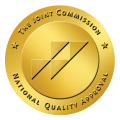Methamphetamine, or meth, is a powerful drug classed as a stimulant. Meth can have very damaging physical effects on a person’s body and brain. The drug can alter how an individual’s brain functions and affects nearly every major organ in the body. Using methamphetamine, also known as “Blue,” “Ice,” and “Crystal,” can be fatal.
According to the Centers for Disease Control and Prevention (CDC), over 23,000 people in the U.S. died from drugs like meth in 2020. Additionally, the 2020 National Survey of Drug Use and Health found that about 1.5 million in America were reported to be dealing with meth addiction in the previous year.
How Does Meth Affect the Brain?

Methamphetamine has serious consequences for the brain, especially with long-term use. It damages the central nervous system, killing neurons—cells in the brain that play crucial roles in different brain functions. This damage can affect memory, learning, and emotions.
Over time, meth can also reduce white matter in the brain, which leads to long-term problems with thinking and decision-making. While some effects may improve after stopping meth use, the loss of neurons is often permanent. This results in long-lasting deficits.
What Does Meth Do to Your Body?
Meth doesn’t just damage the brain—it can cause many physical problems too. It raises blood pressure, which damages blood vessels and significantly increases the risk of having a stroke. It also weakens the immune system, making it easier to get sick. This leaves users more susceptible to infections like HIV and hepatitis B or C.
Other physical effects of meth include weight loss, severe kidney damage, tooth decay (known as “meth mouth”), and painful skin sores. These issues are often accompanied by mental health problems such as anxiety, paranoia, and violent behavior.
Short-Term Effects of Meth on the Brain and Body

As a powerful stimulant, meth drastically increases brain activity. This heightened activity can boost individuals’ energy levels and alertness. However, this comes with risks. Increased activity in the brain can lead to irritability, agitation, and aggression. While meth may give users a temporary sense of euphoria and hyperactivity, it also causes dangerous side effects.
Some short-term effects of meth use include:
- Increased libido
- Heightened interest in sexual activity
- Excessive talking
- Intense feelings of euphoria or pleasure
- Rapid or shallow breathing
- Accelerated heart rate
Long-Term Effects of Methamphetamine Use on the Brain
The most common concern with continued use of methamphetamines is addiction and overdose. While an individual can overdose on meth at any time, long-term use leads to much greater risks.
The longer the drug is used, the more the tolerance builds, making users need higher doses to feel the same effects. This not only heightens the risk of overdose but also leads to severe ongoing problems. Some long-term side effects of meth use include:
- Increased sexual aggression
- Worsening mental health issues like anxiety, paranoia, and depression
- Difficulty experiencing pleasure without meth
- Serious health conditions, including heart disease
Methamphetamine Brain Damage: Can It Be Reversed?

Methamphetamine can cause significant damage to the brain, particularly in the regions responsible for emotion, memory, and cognitive functions. While some damage may improve with long-term sobriety, research shows that not all effects can be reversed.
A study by the National Institute on Drug Abuse (NIDA) found that meth users showed decreased dopamine activity in the brain. This led to reduced feelings of pleasure and motivation overall. Recovery from this brain damage can take years, and in some cases, the changes may be permanent, especially regarding memory loss and decision-making abilities.
This highlights the importance of seeking help as early as possible. Professional treatment for meth addiction can prevent further damage and offer the support needed for recovery before the brain is affected more severely.
Say Goodbye to Meth: Treatment Options and Recovery
At Aftermath Addiction Treatment Center, we understand the devastating impact meth addiction can have on individuals and their loved ones. Founded by those who have experienced addiction firsthand, we are committed to providing proven medical and therapeutic approaches to help people break free from methamphetamine.
Our comprehensive treatment programs include behavioral therapy, individual and group counseling, and peer support. Through empathy, care, and guidance, we believe recovery is possible. Contact Aftermath today or call us at 855-795-1226 to learn how we can help you or a loved one overcome meth addiction for good.







